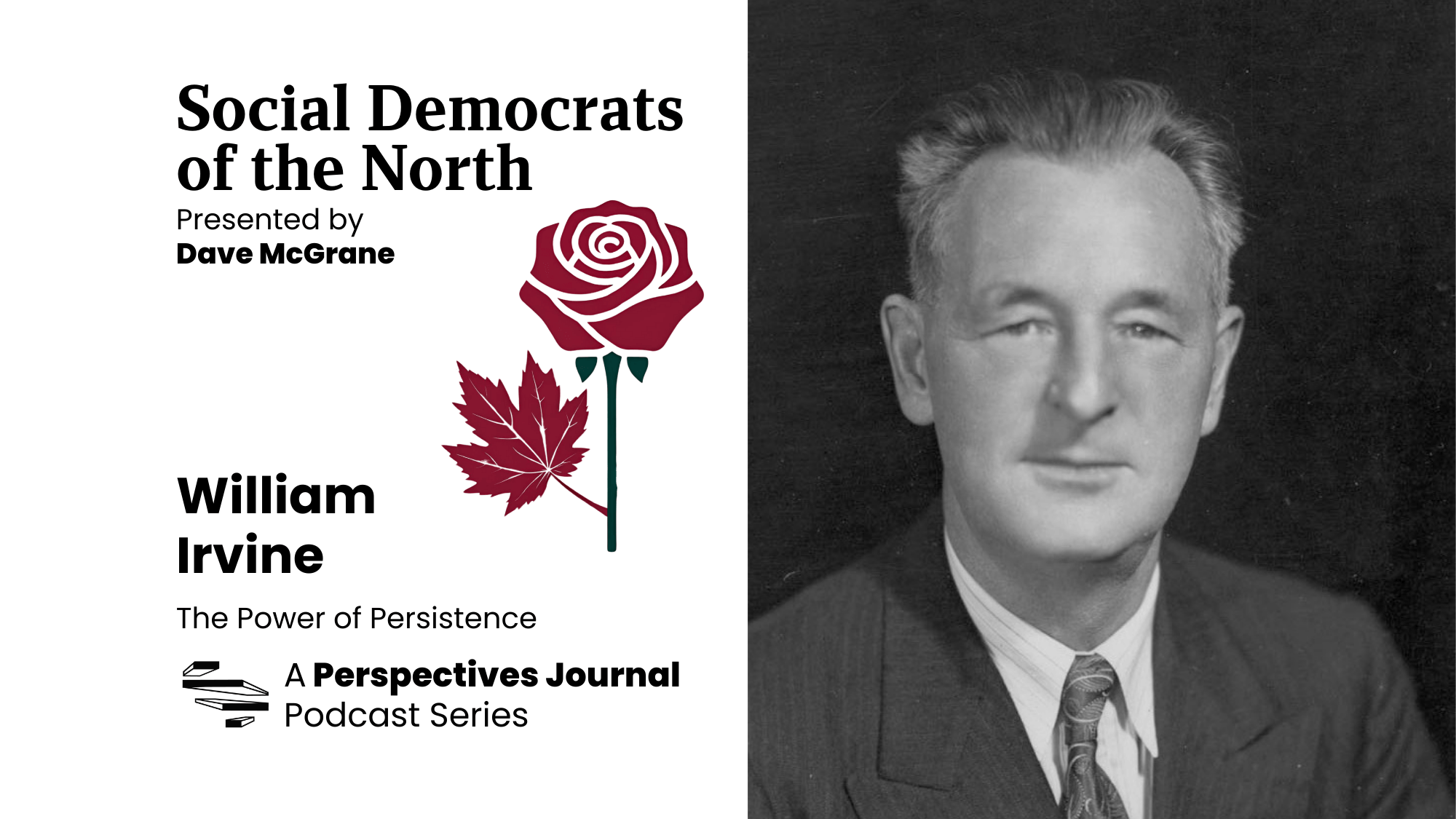There can be a new era of democratic innovation for the federal NDP as it rebuilds from the ruin of the 2025 general election. Its upcoming federal leadership race, moreover, presents this chance to model the democratic transformation that the party ostensibly values. Nearly a decade ago, the combined federal and provincial NDP riding association that I was once a part of put forward my policy resolution to support “participatory budgeting;” a democratic process whereby citizens decide how to spend portions of a budget on capital and operational projects. These organizing efforts never became a policy priority for the party. Today, the federal NDP has an opportunity to use the leadership race to support in-person regional participatory assemblies and open-source digital platforms, such as pol.is or decidim, to amplify the voices of citizens. Democratic renewal of institutions like political parties, therefore, involves democratizing election platform development and internal party decision making structures.
Furthermore, the NDP should spearhead the institutionalization of democratic innovation across various spheres of political life, including the economy in particular. At its root, a political party vested in a more equitable distribution of social goods and wellbeing requires democratic decision making, letting party members and working-class Canadians be a part of those decisions. Without improved democracy, citizens will remain at a distance from the legislative process. Canadians need a strong vision for public participation that rethinks how we democratize institutional dynamics, as well as at the grassroots level, and broadens societal and systemic engagement to redistribute material and social benefits to the public. A brand-new democracy-driven vision for the country is long overdue.
If New Democrats are searching for a model of democratic renewal that connects policy and practice, they would do well to study the success of Zohran Mamdani’s campaign for the 2025 Democratic mayoral primary in New York City. Mamdani won as a democratic socialist in an upset election for the Democratic mayoral candidacy against the party establishment with a campaign rooted in democratic practices such as tenant organizing, mutual aid, and coalition-building with grassroots immigrant communities. The Mamdani campaign, assisted by grassroots organizations such as the Working Families Party and the Democratic Socialists of America, built power by embedding participatory practices into everyday political life. Overcoming the anti-democratic practices of the US Democratic Party, Mamdani’s central campaign office became a hub for co-governance, organizing, and constituent-led legislative prioritization, demonstrating how building between-election infrastructure deepens democracy.
Mamdani’s campaign demonstrates that electoral success and democratic deepening are not mutually exclusive. The NDP can build enduring, place-based democratic capacity like the Mamdani campaign built over several years since his time as a New York State Assemblyman. The reality is that trust in institutions has waned, and disaffected constituencies are increasingly frustrated with their living conditions, leading to negative perceptions of elected officials and policymakers (OECD, 2024). The campaign in New York, however, demonstrates how to build institutional trust and a positive image of an elected representative that does not fall prey to the prevailing diagnoses of mistrust, which are often limited to apparent polarization, disinformation or misinformation, social media, a lack of transparency or accountability, and citizen apathy. While undoubtedly relevant, these factors fail to pinpoint an economic dimension, and analyses typically lack democratic solutions.
The current federal minority government under Prime Minister Mark Carney, upon its election in early 2025, developed a strong narrative centred on building a strong, sovereign, and competitive economy that would be built on trade and industrial diversification, fiscal responsibility, strategic investment, affordable housing, and the recalibration of climate policy. This agenda, in contrast to Mamdani’s campaign agenda, however, lacks any vision or commitment to serious democratic participation. This model views participatory democracy as something external to the economy, where markets are the domain of experts.
Globally, this approach has faced major opposition. Political discontent, rising populism, a general decline in democratic participation, save for episodic elections, and the decline in trust in elected governments are major social problems for Western liberal democracies. They cannot simply be diagnosed as matters of misinformation that foment discontent. The broad-based reactions against Western liberal democracies, however, find greater interaction with the decline of meaningful economic, political, civic, and social opportunities (Rodríguez-Pose, 2020; Rodríguez-Pose et al., 2023). Instead of an integrated, place-based democracy, residents contend with fragmented institutions, limited support, and top-down reforms. Civic actors often work “within the crevices” of institutions, navigating complex and distant bureaucracies, to advocate for their communities (Vlahos, 2023a). Democratic innovations can also fall short because they are underfunded or lack economic grounding (Vlahos, 2023b).
For institutions like the federal NDP to rebuild trust and efficacy, we need a geographically integrated democratic system that maintains collective control over development, infrastructure, and investment. Grassroots, national movements are needed to reform institutions for democratic efficacy. Urban civic networks, though locally effective, rarely bridge spatial divides, and elite-driven reforms struggle to fix profound democratic deficits (de Vries et al., 2024). True democratic reform must address who benefits from growth, who controls industry, and who shapes the community’s future (Vlahos, 2022; Vlahos et al., 2024). Technocratic models and shallow participation are insufficient in addressing the crisis of democratic legitimacy. Authentic institutional renewal requires governance structures that embed democracy in economic life.
Beyond wider electoral reform, which the NDP has been somewhat open to externally, the party should consider the following democratic innovations to restore trust and engage citizens for the advancement of democratic socialism:
- Regional Citizens’ Assemblies
Randomly selected deliberative bodies representing diverse regional populations in regional citizens’ assemblies can establish development priorities and provide a voice for neglected regions. On the one hand, this should be a legislative priority for the party, as it involves politically embedding democratic innovation that regularly engages the public in decision-making, such as the East Belgian Citizens’ Council. On the other hand, citizens’ assembly models can be emulated within the federal NDP itself and its provincial wings. NDP regional citizens’ assemblies would empower party members to engage in deliberative processes outside of biennial party policy conventions. More broadly, regional citizens’ assemblies can help rebuild legitimacy by incorporating public input into decisions regarding infrastructure, education, and employment. These bodies must have binding authority to shape regional strategies. - Participatory Industrial Strategy
Economic development should not be left to markets or technocrats. Multi-stakeholder forums can develop participatory industrial strategy involving workers, businesses, unions, and local governments, which co-determine investment and innovation strategies. This approach embeds public values into decisions about where and how to invest, especially in green transitions or public surpluses (see Whiteside and McBride, 2024). Regional councils in France develop these strategies, and national participatory budgeting in Portugal demonstrates how to connect investment and innovation to public input. For the NDP, participatory industrial strategy is especially relevant because it bridges its historic labour roots with the urgent need for democratic control over Canada’s economic transition. The NDP can position itself as the party that empowers workers, unions, and communities to co-determine Canada’s economic future. - Regional and Supra-Municipal Economic Councils
Many economic challenges, such as housing, transportation, and workforce development, exist at a regional scale that current governance structures often fail to address effectively. Creating councils that span municipal boundaries enables better coordination. These bodies could combine elected and appointed members and align jurisdiction with real economic regions. The UK’s Combined Authorities and Portland’s Metro Council could offer models for regional planning, but with enhanced participatory capacities. For the NDP, supporting supra-municipal councils would signal a commitment to democratic problem-solving that operates at the scale of real economic life. This means moving beyond patchwork municipal responses and provincial downloading, toward councils where residents, workers, and local governments co-shape housing, transit, and employment strategies at the regional level. - Economic Democracy Zones
The NDP should advocate for the creation of localized democratic economic institutions such as public banks, land trusts, and cooperatives, which can anchor economic development in communities while promoting democratic ownership. These “zones” of economic democracy can help redirect local revenues and public procurement toward long-term community wealth. Examples from Cleveland and Preston demonstrate how local control and procurement enhance civic strength and economic resilience through capital investments. For the NDP, advancing economic democracy zones builds on its historic advocacy of co-ops and public ownership. By legislating pilot projects from municipal public banks to community land trusts, the party can root abstract commitments to economic democracy in visible, place-based institutions that deliver material benefits. This grounds democratic socialism in everyday life, while offering communities tools to anchor wealth locally.
Ultimately, these approaches encourage the NDP to reconnect place, opportunity, and democratic participation to inform inclusive economic decisions, both as a broader political strategy and within the party.
References
Click to expand for a full list of references.
Milan de Vries, Jae Yeon Kim, and Hahrie Han (2024). “The unequal landscape of civic opportunity in America.” Nature Human Behaviour. 8(2):256-263. doi: 10.1038/s41562-023-01743-1.
OECD (2024), OECD Survey on Drivers of Trust in Public Institutions – 2024 Results: Building Trust in a Complex Policy Environment, OECD Publishing, Paris, https://doi.org/10.1787/9a20554b-en.
Andrés Rodríguez-Pose (2020). “The Rise of Populism and the Revenge of the Places That Don’t Matter.” LSE Public Policy Review 1(1): 4, pp. 1–9. DOI: https://doi.org/10.31389/lseppr.4
Andrés Rodríguez-Pose, Javier Terrero-Dávila, and Neil Lee (2023). “Left-behind versus unequal places: interpersonal inequality, economic decline and the rise of populism in the USA and Europe.” Journal of Economic Geography 23, 951–977. https://doi.org/10.1093/jeg/lbad005
Nick Vlahos (2023a). “Beyond the Triaging of Neglected Things: Connecting Place and Participation Across an Urban System.” International Journal of Urban and Regional Research 47 (4), 563-579. https://doi.org/10.1111/1468-2427.13178
— (2023b). “Innovations in Participatory Governance and the (De)commodification of Social Wellbeing.” In A. Bua and S. Bussu (eds), Reclaiming Participatory Governance: Social Movements and the Reinvention of Democratic Innovation. Routledge.
— (2022). “Deliberative Systems, Political Economy, and the Spatial Division of Labour.” Paper presented at the Political Studies Association Conference, University of York, Apr. 11-13, 2022.
Nick Vlahos, Adrian Bua, and Jean-Paul Gagnon (2024). “How to Democratize the Economy: Combining Democratic Theory and Critical Political Economy, Democratic Theory, Vol, 11, (1), 1-19. https://www.berghahnjournals.com/view/journals/democratic-theory/11/1/dt110101.xmlHeather Whiteside and Stephen McBride (2024). “Democratizing the Extended State: Public Enterprise Constraints and Capacities,” Democratic Theory, Vol, 11, (1), 43-67. https://www.berghahnjournals.com/view/journals/democratic-theory/11/1/dt110103.xml





